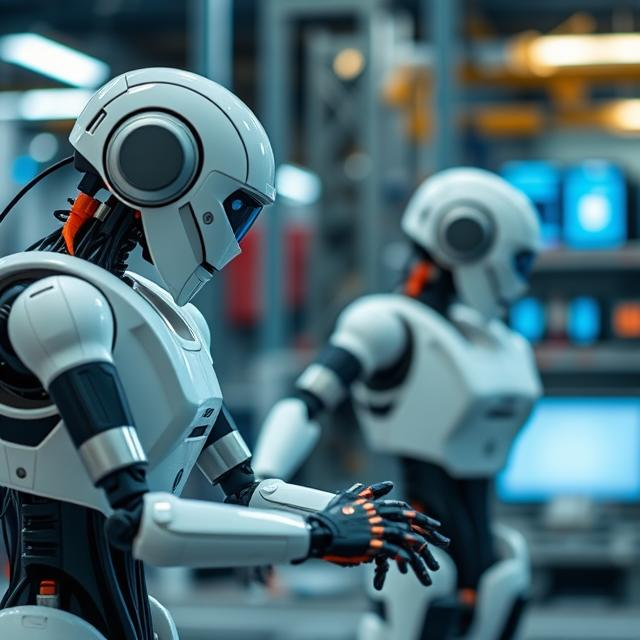What Are Cobots?
Cobots are smart, flexible robots that assist humans in various tasks, from assembling products to packaging and quality control. Thanks to advancements in artificial intelligence (AI) and sensor technology, cobots can detect their surroundings and work safely with humans, eliminating the need for barriers or separate workspaces.
Why Are Cobots Gaining Popularity?
Businesses across different industries are increasingly adopting cobots due to their adaptability, affordability, and user-friendliness. Here’s why more companies are integrating them into their operations:
- Cost-Effective: Cobots are generally more affordable than traditional industrial robots, making them accessible for small and medium-sized businesses.
- Safety First: Built-in sensors allow cobots to detect humans nearby and pause operations to prevent accidents.
- Multi-Purpose Machines: Cobots are easy to program and can be quickly adapted to perform different tasks, making them highly versatile.
How Cobots Improve Workplaces
Cobots are not just another piece of machinery; they revolutionize how workplaces function. Here’s how they add value:
- Boost Productivity: By handling repetitive tasks like lifting, sorting, and assembling, cobots free up human workers to focus on more complex, creative, and strategic jobs.
- Enhance Workplace Safety: Cobots are designed to work safely around humans, reducing workplace injuries caused by heavy lifting or repetitive strain.
- Scalability: Businesses can add more cobots as they grow without needing significant infrastructure changes.
- Increase Job Satisfaction: With cobots taking care of tedious tasks, employees can engage in more meaningful work, leading to higher job satisfaction.
Industries Benefiting from Cobots
Cobots are making a significant impact across various sectors. Some key industries utilizing them include:
- Manufacturing: Cobots assist with welding, painting, and assembling components, improving efficiency in factories.
- Healthcare: In hospitals, cobots help with tasks like delivering medications and disinfecting rooms, reducing the workload on medical staff.
- Warehousing & Logistics: Cobots streamline operations by sorting and organizing packages, reducing errors and speeding up deliveries.
Cobots vs. Traditional Robots
Traditional industrial robots are large, costly, and require separate work areas to ensure safety. They are best suited for high-volume, repetitive manufacturing tasks. Cobots, in contrast, are compact, budget-friendly, and designed to work collaboratively with human employees, making them ideal for businesses that require precision, flexibility, and easy integration into existing workflows.
The Future of Cobots
As automation continues to shape industries, cobots will become even more intelligent and capable. With advancements in AI and machine learning, future cobots will handle more complex tasks, making workplaces more efficient, safe, and engaging. Whether in manufacturing, healthcare, or logistics, cobots are set to revolutionize how we work, improving productivity while ensuring a better work environment for everyone.
